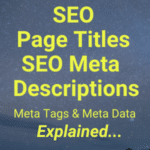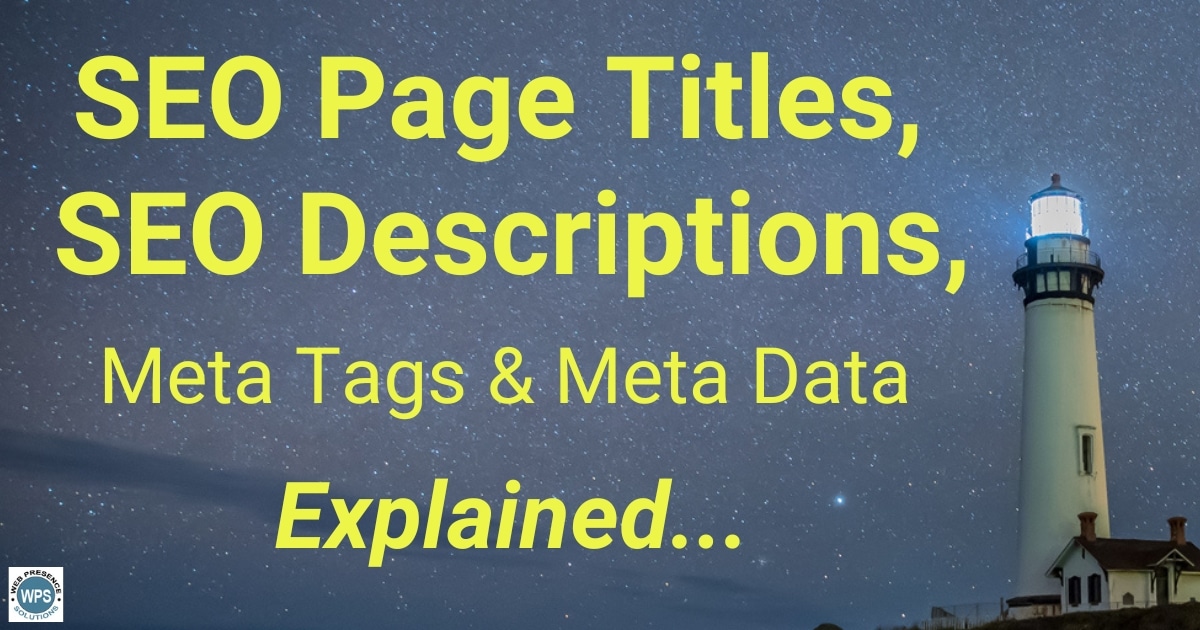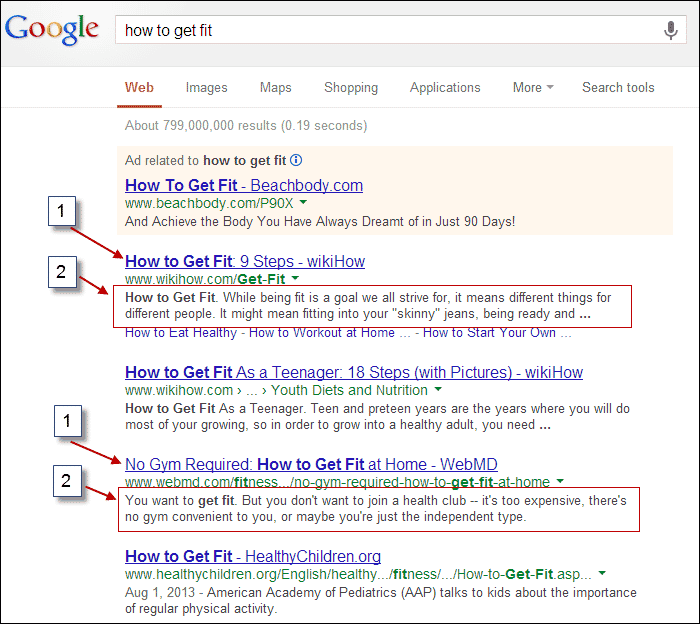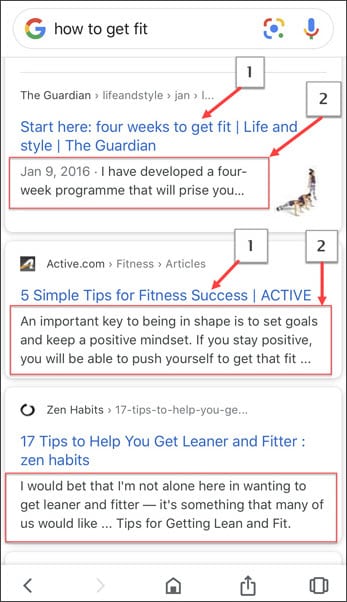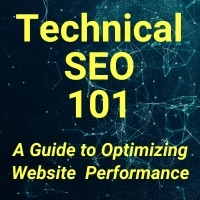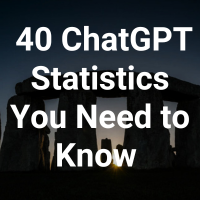How does Google know how to rank a web page from my website in the search results?
Seems like a simple enough question. After all Google processes billions of searches every day.
However, two of the key elements that Google looks at – SEO Page Titles and SEO Meta Descriptions – are not actually visible on the web page that readers see.
Consequently, when someone enters a word or phrase in the search box, how does Google determine which search phrases and keywords to display a given page for?
To begin to understand this process you need to enter the world of meta tags, meta data, SEO Titles and SEO Meta Descriptions.
Meta Data or Metadata:
In a broad sense meta data or metadata is “data about data.” In the web world the term meta data is an important element in optimizing a web page or a website to rank well in the search engines.
- These website HTML elements are often referred to as meta tags, title tags, SEO titles, meta descriptions, description tags, and SEO descriptions.
- The elements are encoded into the page but not actually displayed on the screen when someone views the page.
SEO Page Titles, SEO Description, Meta Title Tags, Meta Descriptions
In the context of web pages, metadata and meta tags can be used to refer to the title and description of a web page. They are frequently referred to as the SEO Title and SEO Description as they are important elements of search engine optimization efforts (SEO).
- These data elements provide important information to search engines about the content and purpose of the web page.
- The most important consumer of the invisible meta data and HTML code are the search engines (Google, Bing).
- In the visible world, metadata determines what text and link Google displays when your page turns up in a search engines results page (SERP) after someone performs a search.
What Is An SEO Page Title or Title Tag
The SEO Title Tag or SEO Title is the single most important element on the page for telling the search engines what the page is about and which keywords to focus on.
- SEO Titles should be 60 characters or less including spaces.
- You should have a unique and well-crafted SEO Title Tag for every page.
- Use keyword research to identify the optimal keywords to use in your title tags.
If you look at the HTML code of a web page the actual code for the meta title tag (SEO Title) will look something like:
Important takeaway: The terms “meta title tag”, “HTML title tag”, “SEO title” and “Page title” generally refer to the same element. These terms are frequently used interchangeably and it is mainly a matter of whether they are displayed on the visible web page or encoded and only visible to search engines.
What Is A Meta Description
The SEO Meta Description is a short text string that provides a summary of what the web page is about. Search engines such as Google display some or all of the meta description in search results.
A well written description can influence searchers to click on the link and visit the web page.
The Meta Description does not have a measurable impact on search engine rankings. However, it can have a significant impact on how many people click and become website visitors when they see your listing on a search engine results page (SERP).
- The more informative a description is, the more likely someone will click on the link on the results page and visit the website.
If you look at the HTML code of a web page the actual code for the meta data description (SEO Description) will look like:
Some key points about meta tags, SEO Titles and Meta Descriptions:
1. The effective use of targeted keywords in metadata can have a significant impact on a website page ranking better for the targeted keywords.
2. Well-crafted Page Title and Page Description meta tags can help motivate searchers to click through to your website when they read these items on a search engine results page.
3. Missing or incomplete metadata can limit search engines from understanding what a given web page is about and prevent the website page from ranking well for its most important keywords.
4. Clicks to your web page are more important that just showing up in the search results (impressions). Writing compelling SEO Titles and SEO Descriptions play an important role in getting people to click through to your website.
5. Clicks on a page in a search engine results page (SERP) are measure by CTR or Click-Through-Rate.
6. Informative and accurate meta titles and met descriptions increase visibility and CTR.
7. Create a unique Title and Description for each page. If multiple pages have the same meta title Google will only rank one of the pages for the keywords in the title.
8. Keywords used for SEO Titles and within Meta Descriptions can also be used in alt tags for images.
9. Put the most important keywords closer to the beginning of the title tag.
10. Don’t start every title tag with the name of your business or website.
Related Post: “Reasons Search Results Can Vary – Dramatically”
HTML Tag Lengths and Optimization
Optimizing these HTML tags is an important tactic for your web pages and website to rank well in the search results that Google, Bing and Yahoo display to searchers. In the bigger picture ranking well in search results increases the visibility for your website and web pages leading to more people visiting your web site.
Structuring these tags effectively is important. Google will only display a certain number of characters for both the HTML title tag and the HTML description. Making the effort to create effective title and description tags is well worth it.
Title tags are an HTML coding element, but will also display in two other areas.
- When the page shows up in a search engine results page (SERP) and in the page title in a browser tab.
- In the browser tab it will generally be less than the full length.
- Some social networks will also use the title tag when people share the page.
The optimal length of an SEO Page Title tag is 50 – 60 characters. Titles with more than 60 characters are generally truncated and the additional characters are not displayed.
- While this is not always an exact rule with Google and there can be some variation, 60 characters is a good target to shoot for.
The best length for a SEO meta description can vary and Google has been known to change to length of characters it displays.
- Most of the time Google only displays 155 – 160 characters for meta descriptions.
- On Mobile devices fewer characters may be displayed.
- It’s good to keep meta descriptions long enough that they are effectively descriptive, but not longer than 160 characters.
Impressions, Clicks and Website Visitor Traffic
The content of the Title can have a direct impact on which search terms or keywords the given web page will rank for in the search engines. Better constructed Titles can result in better rankings (Top 10 vs. 41 – 50) and more visitors to your website. This aligns with a key goal of Search Engine Optimization (SEO).
- Well written Titles and Descriptions can get people to click through to your site regardless of the location in the SERPs.
A well constructed meta description of the web page can be the difference between receiving “impressions”, or views on the search engine results page, and getting a searcher to actually click on the link (click through) and visit your website.
The click through rate (CTR) will have a direct impact on ranking – more clicks – higher rank.
According to Search Engine Journal:
“In addition to SEO, meta descriptions can drive clicks, traffic, potential conversions, and revenue…” (Read more here...)
What Is Displayed In the Search Engine Results Pages:
Page Title: This metadata element, also known as the SEO Title, shows up as an underlined blue link on the search engine results page (SERP) with the search phrase bolded.
Meta Description: This element is displayed directly below the Title and the page URL in the SERPs. The description is limited to approximately 160 characters including spaces and provides further information describing what a visitor might find on the webpage.
IMPORTANT: Every page should have a unique, well-crafted title and description. If the Google does not find a meta description tag used for a webpage it will attempt to use the most logical content it can find on the page. This is frequently the first 160 characters of text on the web page.
Meta Keywords: If you encounter this tag you can ignore it. This meta tag has diminished in importance, is ignored by Google and not worth spending any time on. It is no longer used and was retired by Google in 2006. Don’t waste any time on it. For more insights on the deprecated tag see: “Meta keywords Why we don’t use them – and neither should you”
How SEO Page Title Tags & SEO Meta Descriptions Look in Actual Search Results
Sometimes a picture is worth a thousand word – or more. The Screenshots below provides a good illustration of the Title and Meta Description in action. The first image is from a browser on a desktop computer. The second image is from a browser on a mobile phone.
Box #1 in the images below points to where the text from the Title Metadata is displayed on the actual SERP.
Box #2 in the images points to the where the text from the “Meta Description” is displayed.
Search results page display on a mobile device:
There are a number of techniques and nuances when creating meta titles that are beyond the scope of this article. Want to dig Deeper? Here are a couple well written resources for more information on SEO Titles and metadata. MOZ: Title Tags – SEO Best Practices and Yoast: How to craft great page titles for SEO
SEO Titles & Descriptions – Conclusions:
Finish the job: It’s worth it to take the time to do it right and create engaging and informative SEO Title Tags and Meta Descriptions. After taking the time to create the content on the page make the extra effort to help potential visitors find your content.
Better Titles and Descriptions, More Visitors: SEO titles and meta descriptions when properly written, can boost your rankings, click-through rates (CTR) and conversions.
Therefore, if Google sees that your well-written meta title and description tags are getting more clicks than the other pages, they can boost your pages up the stack in the SERPs!
Things change: Like many things on the Internet how Google treats title tags and meta descriptions can change over time. And your competitors change. Review your title tags and descriptions periodically. Up to date keyword research will help.
Handpicked Related Posts from Our Blog (click on the icon)
